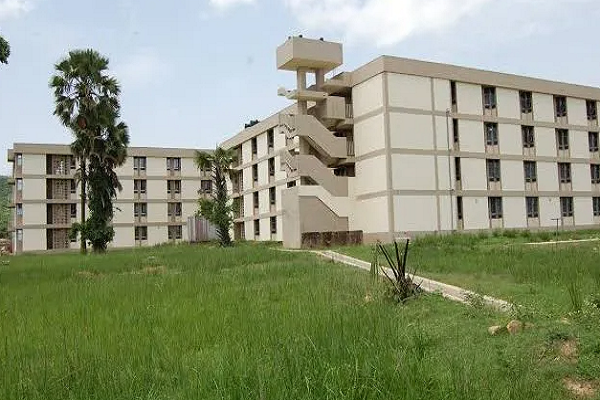By Daniel Akinte
Adeola Merit’s dreams of a smooth academic journey took a harsh turn when she discovered that her off-campus hostel rent had been increased.
A 200-level Microbiology student at Adekunle Ajasin University, Akungba-Akoko (AAUA), she had anticipated some financial relief in her second year.
Instead, she was met with the same financial demands as new tenants, despite the lack of any facility upgrades.
“When I first got my self-contained apartment, I paid ₦120,000, assuming the rent would reduce the following year for old tenants,” she explained with a heavy sigh. “But instead, we are all paying the same ₦120,000 now, including first-timers. Back then, staylites paid about ₦80,000 or ₦75,000. I was shocked when the landlord increased it for everyone.”
To Adeola, the increment felt unjustifiable, especially as the apartment showed no signs of improvement. “There’s no visible upgrade in the facilities, yet the rent keeps climbing. It has made things harder academically because I’ve had to delay buying handouts and study materials,” she lamented.
Her story mirrors that of many AAUA students grappling with sudden rent hikes.
Housing Challenges in AAUA
Adekunle Ajasin University, Akungba-Akoko (AAUA), like many Nigerian tertiary institutions, faces significant challenges in providing adequate student housing.
With limited on-campus accommodation facilities, a majority of students rely on off-campus housing managed by private landlords. This dependency often leads to high competition for available spaces, giving landlords the leverage to impose arbitrary rent increases.
The situation mirrors a broader issue in Nigerian universities, where overcrowding, lack of regulation, and insufficient infrastructure exacerbate the housing crisis.
Many students struggle with exorbitant rent, poor living conditions, and inconsistent landlord practices, which directly impact their academic performance and mental well-being.
Caught Off Guard by Price Surges
For Adelabu Victoria, a 300-level Accounting student, the rent hike from ₦30,000 to ₦70,000 was a harsh blow. Sharing the apartment with a roommate to ease costs, they both found themselves struggling to manage the abrupt increase.
“The increment was unexpected and deeply affected us. We hadn’t even paid our school fees when the landlord raised the rent,” Victoria said. She and her roommate negotiated tirelessly with their landlord, pleading for leniency.
Other students like Olubodun Oreoluwa have been spared from rent increments, but only because they were existing tenants.
However, new students in her villa now pay ₦150,000, a steep jump from the ₦120,000 she pays.
“I’ve been lucky, but I know many students from less privileged backgrounds who are severely affected,” Oreoluwa said.
“For those who have to work to pay their rent, it’s a vicious cycle; they work longer hours, miss classes, and struggle academically.”
Oreoluwa also expressed frustration with landlords who contribute little to hostel upkeep. “We take care of repairs and replacements ourselves. It’s unfair to increase rent without providing any improvements.”
Economic and Demand Pressures
Speaking on the issue, Olufunke Arowojolu, an agent and CEO of Urban Realty Solutions, attributed the rent hikes to economic factors and high demand.
“The country’s economy is in shambles. Inflation has diminished the value of ₦100,000, making it hard for landlords to maintain their properties without raising rents,” she explained.
Arowojolu also pointed to the growing number of students seeking accommodation as a factor. “The school admits more students yearly, creating a supply-demand imbalance that landlords exploit.”
She warned students against dealing with unregistered agents, who often inflate prices. “Agency fees should only be 10%, but some agents charge much more. Always verify an agent’s registration to avoid being exploited,” she advised.
Landlords’ Perspectives
For landlords like K.T. Lawal, the rent increase stems from rising costs of building materials and inflation. “Cement prices have jumped from ₦7,000 to ₦10,000, and every item needed for maintenance has become expensive,” he said.
However, Lawal admitted that landlords seldom consider the financial struggles of students. “The government isn’t providing palliatives for low-income families, so landlords also struggle to make ends meet,” he argued.
Another landlord, Baba Jatto, candidly attributed the hikes to “population and demand.” He acknowledged that the rent increase wasn’t accompanied by any facility improvements and that students were often given inadequate notice before the changes took effect.
Students’ Affairs Steps In
To address the crisis, Mr. Akinola, AAUA’s Students’ Affairs Chairman, detailed ongoing efforts by the university. “We’ve established an off-campus unit to monitor how caretakers treat students and convened meetings with landlords, agents, and other stakeholders,” he said.
Akinola revealed plans to involve the Alaale of Akungba, the town’s monarch, in addressing the issue.
He also stated that new on-campus hostels under construction, including one funded by the Niger Delta Development Commission (NDDC), could alleviate the problem.
“Once these hostels are ready, the pressure on off-campus housing will reduce, and rents will likely drop,” he assured.
Despite these efforts, he called on students to stand united. “If one student refuses to pay inflated rent, another desperate one will. We need collective action to address this problem effectively,” Akinola emphasized.




